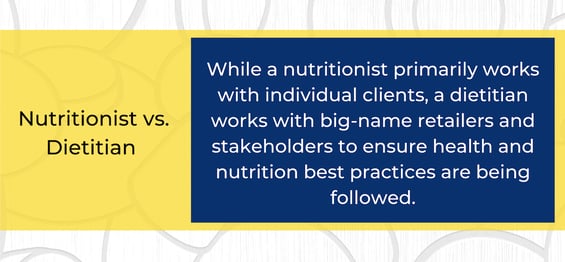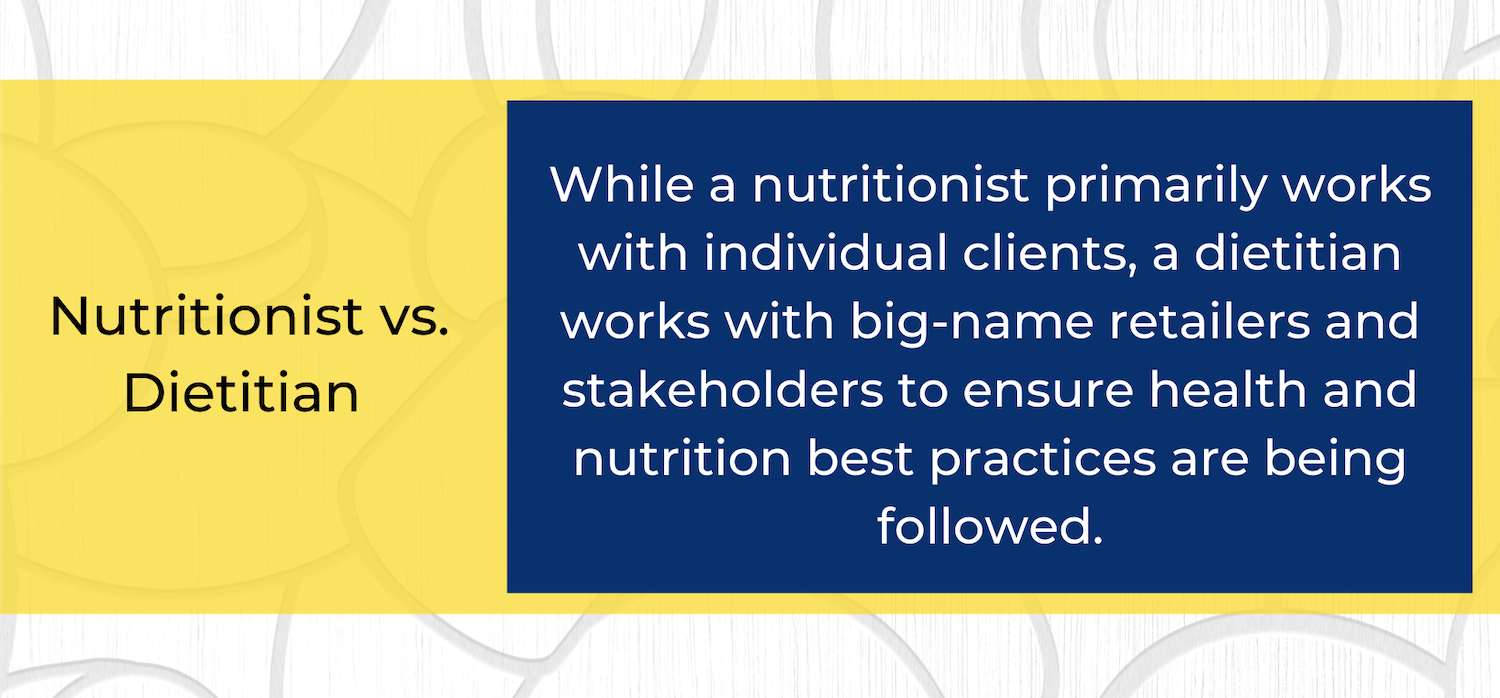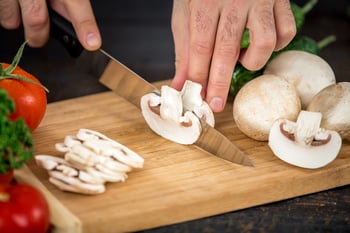Behind the curtain of many health-forward grocery stores stands a backstage mastermind: the retail dietitian (RD).
These nutrition experts collaborate with many supermarkets and help shoppers like you make healthier dietary choices. But despite their importance, many consumers still don’t understand what exactly RDs do and the true extent of their influence. How would you— when they’re meant to integrate so seamlessly into the store culture?
But their work deserves recognition! Let’s shine the limelight on the supermarket dietitian to see their positive impact on grocery stores and the food you’re exposed to while walking down the aisles.
What is a Retail Dietitian & Why Are They Needed?
Grocers are in a constant struggle to provide healthier options and more profits, all while standing apart from other competing supermarkets.
Many retailers are operating on tight margins and can’t rely on lowering their product prices to win customers. Instead, many focus on improving their service offerings for the upper hand.
Enter the retail dietitian.
Supermarkets often hire these health and nutrition experts to help improve their shoppers’ grocery-buying experience. That means they’re primarily responsible for helping you.
Generally speaking, the role of the in-store dietitian varies. Many RD’s focus on engaging you as a retail customer in health and wellness activities, which we’ll break down below. Some take this a step further and play a strategic role in managing chain-wide nutritional shelf tags to help shoppers identify more healthy options. Others also offer marketing and promotional planning services.

How Supermarket Dietitians Help Customers Like You!
Here are just a few ways RDs help supermarkets and shoppers you like every day:
In-Store Health Food Education
Perhaps the most recognizable role a supermarket RD plays is the smiling face of the customer-facing nutritionist. These dietitians may station themselves or another nutritionist within a grocery store to host live food demos featuring healthier products. As a shopper, you can try samples, ask questions and learn a little more about some of the nutritious options the retailer offers.
These supermarket dietitians are there to provide expert guidance, connect you with important dietary research, clear up confusion about the health implications of the latest fad diets, etc. and introduce you to create food pairings you may not have thought of. For instance, our team at Monterey may discuss why some mushrooms contain servings of vitamin D while others don’t— and why this nutrient is an important dietary addition.
Consumer Resources
Retail dietitians often take their health food education a step further by providing shoppers like you with options for taking what you’ve learned home. Maybe it’s giving out informative brochures with a few healthy recipes (especially those specifically branded around the retailer itself, featuring specific product offerings they offer). Or it might be sharing a meal kit to prepare customized meals.
These helpful resources are created in a collaboration between the dietitian and the retailer— aimed at enhancing their joint marketing efforts and serving shoppers beyond the grocery aisles.
Cooking Demonstrations
A retail dietitian may conduct a live cooking demonstration to show you how to prepare a recipe in person. This can be an exciting way to pique interest and push particular products the dietitian and the retailer have collaborated to promote. For instance, here at Monterey Mushrooms, we may work with a retail dietitian to show the proper way to prepare and serve our fresh mushrooms or advise on how to pair them with other popular foods already on the retailer’s shelves— say, with their green beans to make a delicious casserole.
In light of COVID-19 health precautions, many RDs have shifted to hosting virtual cooking classes (see Digital Marketing Outreach section below). These digital classes often reach a larger audience, since they can be viewed and shared on social media and extended beyond live attendees, in contrast to in-person demos.
In this post, we discussed how our team at Monterey works with RDs to promote nutritional foods like our High Vitamin D mushrooms. Learn more about the power of incorporating High Vitamin D mushrooms into your diet by downloading our free ebook, today!
Food Sensitivity / Awareness Classes
A supermarket retail dietitian may also organize specific educational classes pertaining to food-related conditions and sensitivities. For instance, an RD may host an in-person class or video webinar on food allergies, health awareness around specific diet restrictions for diabetics, celiacs, vegans, etc., or surrounding heart health, gut health, etc. This is just one more way supermarket dietitians help big brand retailers target specific audiences and help individuals like you with unique dietary restrictions.
Digital PR & Marketing Outreach
Retail dietitians aren’t only store-bound. These nutritionists often act as digital thought leaders on a supermarket chain’s website or social media outlets. They may host their cooking or health classes and demonstrations virtually. They may also help to create Youtube lessons, educational Instagram videos, etc. that shoppers like you can subscribe to and follow.
They also may work with retailer brands to write or edit nutritional content that goes out in your customer-receiving emails/newsletters— or advise their marketing teams on more ways to promote healthier products online. For example, a retail dietitian may work with our team at Monterey Mushrooms to get the most accurate nutrition facts on our mushrooms to share in their promotional content or even providing e-cards for printable recipes!
RDs may also act as the authority figure behind a local media or news feature to increase awareness around health food options all while promoting the retailer.
Strategic Supermarket Management
Supermarket retail dietitians often work closely with the grocers themselves, much like a consultant. They may provide expert advice on product labeling within the store to better highlight shelf tags, help develop nutrition policies, and to stay-up-to-date on dietary trends and topics.
This may involve nutrition-focused tours within the store with grocery staff members, educating them on sustainability, and building out health-focused campaigns and programs internally— not just for you as a shopper. For example, an RD may manage a grocery store employee wellness program. Many RDs focus on empowering internal stakeholders and staff to spread a wider message of health-consciousness from the top down.
Community Partnerships
Because a dietitian’s goal is to spread awareness of and help to promote healthier eating choices, you may find that these nutrition-focused individuals assist outside the supermarket as well.
Many are active in their communities at large, helping to educate and facilitate food donations and organize healthier feeding assistance programs. The dietitian may even get their retailers involved, inspiring them to place a food donation box at the entrance/exit of the grocery store with recommendations for the types of foods they’re accepting for shoppers like you to join the cause.
More Nutritious Mushrooms
There you have it: a peek into the “behind the scenes” of the role of the retail dietitian. So the next time you see someone at your local grocery store doing a cooking demonstration or receive nutritional materials about certain foods in-store, be sure to thank your RDs for their dedication to helping you eat better.
Are you a retail dietitian? We’d love to work with you. Contact us.






